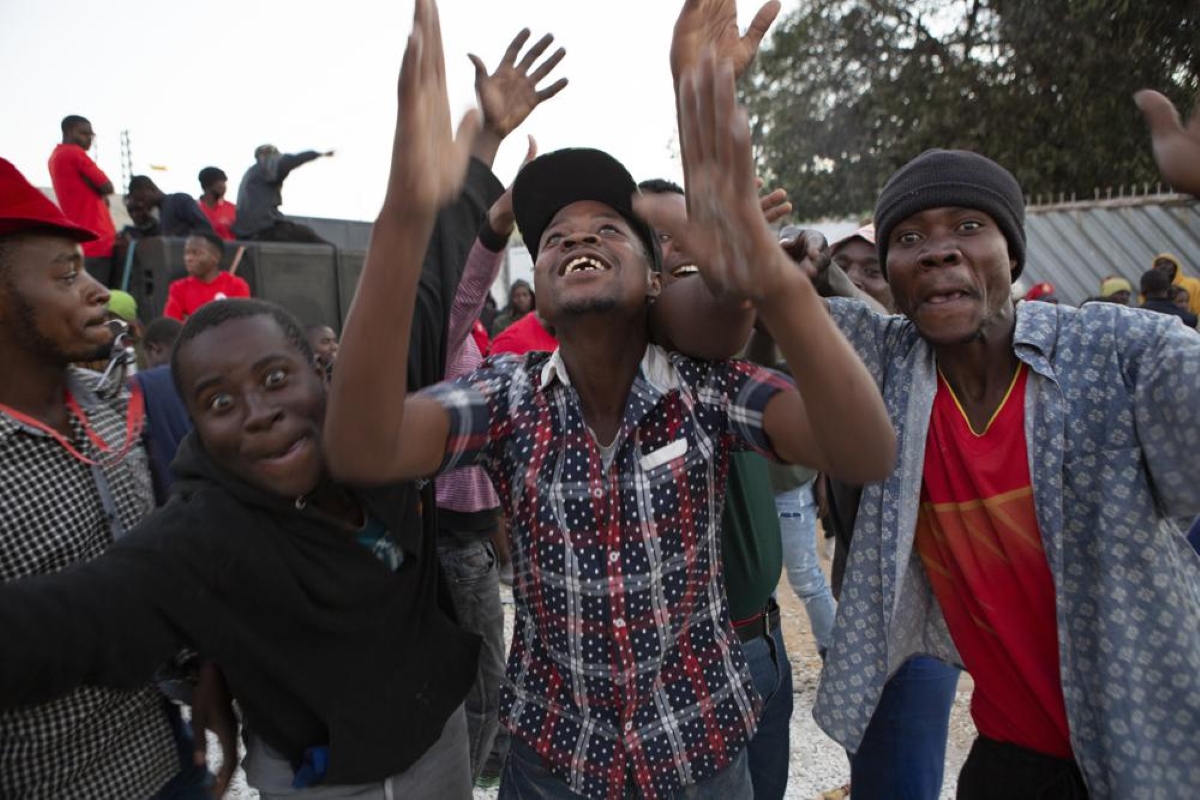How far right will Germany go?
With only a few weeks until Germany’s election, Elon Musk has unambiguously thrown his support behind the far-right Alternative for Germany (AfD) party.
The defeated Lungu, 64, can still appeal the result in the courts as he has already signaled that he may not accept his loss

Supporters of main opposition leader Hakainde Hichilema celebrate on a street, in Lusaka, Zambia.
Zambia’s veteran opposition leader Hakainde Hichilema has won the southern African country’s presidency after taking more than 50 per cent of the vote.
Hichilema was declared president–elect by Esau Chulu, chairman of the Electoral Commission of Zambia, early Monday after results for 155 of the country’s 156 constituencies were announced.
Advertisement
Hichilema, a 59-year old businessman contesting the presidency for the sixth time, got more than 2.8 million votes to President Edgar Lungu’s 1.8 million votes, achieving one of the biggest electoral wins in Zambia’s history.
Advertisement
Hichilema garnered more than 50 per cent of the nearly 5 million votes cast to win the presidency outright, without having to go to a runoff election.
Hichilema narrowly lost two previous elections to Lungu in 2015 and 2016. His support grew in each of those polls and in 2016 he lost by just 100,000 votes.
Zambians celebrated overnight, with hundreds of Hichilema’s frenzied supporters turning his home on the outskirts of the capital, Lusaka, into a party zone.
The defeated Lungu, 64, can still appeal the result in the courts. He has already signaled that he may not accept his loss.
Lungu asserted Saturday that the elections had not been free and fair in three provinces seen as opposition strongholds, citing violence and the killings of a few of his supporters, allegedly by the opposition. Lungu claimed that ruling party polling agents had been brutalized and chased away from voting stations, leaving his party’s votes “unprotected.”
His Patriotic Front party is “consulting on the next decision we have to make,” he said in a statement released by his office.
Lungu can approach the Constitutional Court within seven days of the declaration of a winner of the presidential election results, according to lawyers’ professional body, the Law Association of Zambia, citing the country’s constitution.
Hichilema has his work cut out for him, as his supporters are looking to him to increase employment and cut out corruption. “We will fix this!” was one of his popular campaign slogans.
Zambia recorded economic progress for more than a decade and achieved middle-income status in 2011, but now the country is beset by high inflation, high debt and allegations of corruption.
The pandemic hurt the already tottering economy even further. Lockdown measures pushed Zambia into its first recession since 1998 and the economy contracted by 1.2 per cent, according to the World Bank.
An easing of the lockdown measures in the latter part of 2020 and the global rise in copper prices resulted in some recovery, although inflation reached a high of 22 per cent in February this year, according to the World Bank.
Advertisement